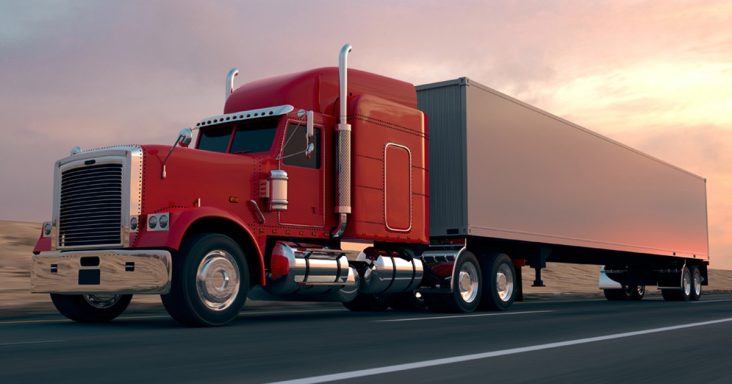Diesel trucks fill gap while alternative fuels, technology develop, whitepaper shows
by September 14, 2022 1:39 pm 1,438 views

Diesel-fueled trucks remain the short-term solution while alternative fuels and technologies continue to advance and fleets work to reduce emissions amid pressure to do so, according to a recent whitepaper on the future of heavy-duty trucks.
The Fleet Advantage whitepaper shows nearly 90% of companies in the S&P 500 have plans and reports on how they will achieve carbon-reduction goals as more corporations and business leaders have taken steps to make the plans over the past few years.
Still, more efforts may be required since the U.S. Securities and Exchange Commission (SEC) issued a proposed rule for public companies to disclose climate-related efforts. Under the proposal, companies would be required to adhere to greenhouse gas emissions disclosures and document their emissions certifications for SEC filings.
“This is critical because medium- and heavy-duty vehicles, including tractor-trailers, large pickups and vans, delivery trucks, buses and garbage trucks, produce about 24% of transportation emissions,” the whitepaper shows.
Greenhouse gas emissions have been the focus of climate change discussions, with global economic activity increasing carbon dioxide (CO2) levels by 50%, from average levels between 1750 and 1800, or before the industrial revolution, according to the whitepaper.
Some of the strategies to reduce transportation emissions include replacing internal combustion engines with battery-electric, hydrogen fuel cell or biofuel technology, the whitepaper shows. However, the short-term path to replacing the engines is limited by technological advancements and is not expected to happen in the industry over the next few years.
“There are a few things from a regulatory point of view and framework that need to happen to accelerate,” said Patrick Carré, vice president of the commercial road transport sector for Shell. “What I mean by that is if negative CO2 emissions aren’t factored into the pricing, technology change will not happen. If you think about the situation today, there are many advantages that diesel technology brings. If the CO2 effect of diesel consumption doesn’t get factored into the price, it will be very difficult for other technologies to emerge. That is a role the regulators should play.”
Eventually, alternative fuels and technologies are expected to replace fossil fuel-based energy across the transportation and power-generation sectors amid the risk of running out of the non-renewable resources, the whitepaper shows.
According to Wood Mackenzie analysts, electric heavy-duty trucks are projected to displace about 700,000 barrels of day of oil demand in 2040, or about 0.6% of global consumption. The majority of this can be attributed to light and medium trucks, mostly driving short distances where battery ranges aren’t a concern.
According to a recent industry survey, 54% of respondents would consider electric class 8 trucks, the largest truck class, for over-the-road transportation in five to 10 years. Only 3% of fleets are purchasing electric trucks now. In 2021, 30% of respondents said they didn’t see electric trucks widely in service for 10 years.
The whitepaper shows most carriers believe “clean-diesel technology and new low-carbon fuel” are more viable for emissions reduction than a shift to battery-electric or hydrogen fuel cell vehicles. Recently, the American Transportation Research Institute issued a report showing that proposed mandates would require all trucks sold in California to be zero emission by 2040, but “some trucking companies will simply not be able to use today’s ZET (zero-emission transport) technologies as part of their operations.”
According to the whitepaper, fleets that shorten the life cycles of their diesel-fueled vehicles would increase fuel efficiency and reduce fuel consumption and emissions. For example, a 500-truck fleet that switched from an eight-year to a five-year life cycle for their trucks would reduce fuel consumption by 2.49 million gallons. The impact over five to 10 years would reduce CO2 emissions by 24,122 metric tons.
The whitepaper shows two fleets recently eliminated over 55,000 metric tons of CO2 and conserved more than 5 million gallons of fuel or about $25 million in reduced fuel expenses. Also, fleets that operate newer and safer trucks are expected to save motorist lives and attract and retain more drivers, while mitigating litigation and reducing emissions.
